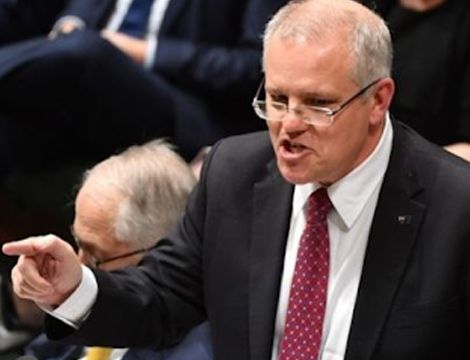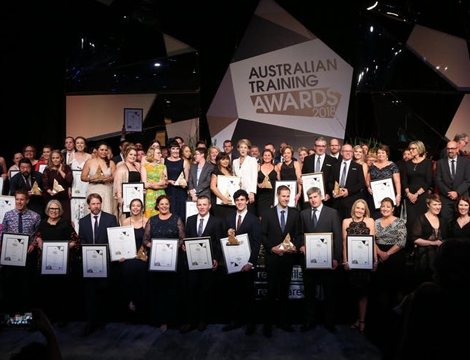How the Australian VET sector is changing
The National Centre for Vocational Education Research (NCVER) has released the latest data on Total VET Activity.
Looking at program enrolments (full qualifications, accredited courses and skillsets) in TAFEs and private providers the data shows that government funded enrolments in TAFE have been largely static at a national level for the last five years (although state-based data below shows some differences by jurisdiction). In the same period as TAFEs have responded to changes in government policy, funding and restructuring in different jurisdictions, there has been a notable decline in their domestic fee-for-service enrolments, and their international enrolments have been in decline from a low base.
For private providers there was a decline nationally in government-funded enrolments from 2016 – 2018 but a subsequent increase in the last two years. Domestic fee-for-service enrolments have dropped, albeit off a high level, and international student enrolments grew year-on-year including last year with the border closed.
For more information, please click here.
The changing career expectations of Australian teens
New analysis reveals the occupational aspirations of Australian girls have become more concentrated over time, while those of Australian boys have become less concentrated.
The latest issue of ACER’s Snapshots series examines data from the 2018 OECD Programme for International Student Assessment (PISA) about Australian students’ occupational aspirations and the roles they expect to be engaged in when they are around 30 years of age.
Around 10,000 Australian 15-year-olds, or 75 per cent of the nationally representative sample of students that participated in PISA 2018, responded to the question, ‘What kind of job do you expect to have when you are about 30 years old?’ There were significant differences in occupational expectations between girls and boys.
For more information, please click here.
Morrison Government marks National Skills Week 2021 with highest funding for skills and training in Australian history
The Morrison Government has marked National Skills Week 2021 by reminding Australians of the incredible opportunities of a skilled career as hundreds of thousands make use of the skills and training pathways guaranteed through record levels of federal funding.
Given the massive demand for skilled workers it is also a great reminder that it is never too late to take up a new trade or to upskill through Australia’s world-class vocational education and training sector.
National Skills Week will see events and webinars held across the country aiming to help Australians unlock their potential and gain real skills for real careers.
For more information, please click here.
Aged care facing impending shortage of 110,000 workers, report finds
Urgent action is needed to address a looming shortage of at least 110,000 aged care workers over the coming decade, including boosting pay and conditions and creating a new dedicated migration path to boost the labour force.
The stark warning is contained in a new report to be released by the Committee for Economic Development of Australia (Ceda) on Tuesday. The report says unless the Morrison government takes action now, Australia’s aged care workforce shortage will balloon to more than 400,000 workers by 2050.
The report finds Australia has failed to prepare for “the human challenge at the centre of aged care” by building a workforce that is both big enough and well-equipped to meet community expectations.
Fore more information please click here.
Australian border closures blamed for $2.7bn ELICOS related loss
Border closures related to the pandemic in Australia will see the country’s economy AU$2.7 billion worse off due to losses in income that would usually be generated by the ELICOS sector, according to a new analysis.
For more information, please click here.
Extra $3.2m to boost support for vocational education and training
A new funding model, backed by a $3.2 million investment, will help government schools to support their students into industry-endorsed Vocational Education and Training (VET).
Under the new arrangement, government schools will receive top-up funding of $300 for each student, or $600 for each eligible student with a School Card, enrolled in a VET qualification as part of a Flexible Industry Pathway (FIP).
The money will go directly to the school to support them with the implementation of the VET for School Students policy.
For more information, please click here.
Australia’s manufacturing sector to be revived as a result of COVID-19
IBSA Group, a workforce skills program developer, in support of National Skills Week next week, reports that Australia’s manufacturing sector will be reignited as a result of COVID-19.
More job opportunities and skills-based apprenticeships are likely to be created, due to more companies manufacturing in Australia rather than abroad, IBSA Group CEO Sharon Robertson said.
“Governments are also committed to substantial funding to re-skill our workforce in response to these challenges, which is incredibly encouraging and exciting for Australia’s manufacturing and related industries,” Robertson said.
For more information, please click here.
U.S. Invests $220M in Artificial Intelligence Research Institutes
The U.S. Department of Agriculture’s National Institute of Food and Agriculture (USDA-NIFA) and the U.S. National Science Foundation (NSF) announced a $220 million investment in 11 new NSF-led Artificial Intelligence (AI) Research Institutes. USDA-NIFA and other agencies and organisations have partnered with NSF to pursue transformational advances in a range of economic sectors and science and engineering fields — from food system security to next-generation edge networks.
In the tradition of USDA-NIFA investments, these new institutes leverage the scientific power of U.S. land-grant universities informed by a close partnership with farmers, producers, educators and innovators to provide sustainable crop production solutions and address these pressing societal challenges. These innovation centres will speed our ability to meet critical needs in the future agricultural workforce, providing equitable and fair market access, increasing nutrition security and providing tools for climate-smart agriculture.
Director of USDA-NIFA
For more information, please click here.
China Revises Law to Advance Innovation in Science, Technology
Chinese national lawmakers began deliberating a draft revision to the law on scientific and technological progress, as the country seeks to advance the quality and efficiency of its innovation in science and technology.
The draft was presented to the ongoing session of the Standing Committee of the National People’s Congress for its first reading. The lawmakers would add three chapters to the existing law which are “basic research,” “regional scientific and technological innovation” and “international scientific and technological cooperation”.
For more information, please click here.
Afghan women at university will study separately from men, the Taliban say
The new Taliban government says Afghanistan’s education system had changed since their last time in power. But women will only be allowed to study in gender-segregated classes and Islamic dress enforced.
For more information, please click here.
Canada: students worry about unaffordable course withdrawal
International students enrolled at Canadian institutions have said they are unable to withdraw from their courses and get refunds due to college policies and visa processing delays.
For more information, please click here.
Internationals contribute £28.8bn to UK economy yearly
International students in the UK contribute £28.8 billion to the country’s coffers annually – an equivalent of every citizen being on average of £390 better off – new analysis has revealed.
For more information, please click here.
‘It’s so hard’: how the pandemic upended young people’s career paths
Remote learning and its detrimental effect on their study have forced many teenagers to rethink tertiary education.
For more information, please click here.
India urges Australia to address students’ difficulties due to travel restrictions
India on Saturday urged Australia to sympathetically address as soon as possible the difficulties being faced by Indian students due to the travel restrictions put in place by that country in view of the COVID-19 pandemic. The issue was taken up during deliberations when External Affairs Minister S Jaishankar and Defence Minister Rajnath Singh held the inaugural ‘two-plus-two’ dialogue here with their Australian counterparts Marise Payne and Peter Dutton.
For more information, please click here.
India, Australia concur that ‘Afghanistan must not become terror hub’
India and Australia on Saturday, September 11, 2021, and expressed concern over the situation in Afghanistan and hoped that its territory would not be used for terrorists’ activities and doesn’t become a safe haven for terrorists.
Speaking to the media after the first 2+2 dialogue between India’s external affairs minister S Jaishankar and defence minister Rajnath Singh with their Australian counterparts Marise Payne and Peter Dutton, Jaishankar said the two sides had a “very detailed exchange of views” and the India-Australian approach was very similar.
For more information, please click here.
Student wellbeing and online learning: Tips for students
Due to the current outbreak of the COVID-19 strain of the coronavirus many higher education providers have switched to online delivery of all or many of their courses. Some providers have a lot of experience in online teaching while others are new to the experience. The same is true for the students in higher education. At a time where many students have to get used to a new way of studying and learning, TEQSA would like to offer some resources to assist students in their adjustment to online learning.
For more information, please click here.
Providers: Check your delivery locations in asqanet are up-to-date
Maintaining accurate and up-to-date provider information is a requirement for training providers.
Accurate delivery location data is important to provide students with surety and understanding about how and where your courses can take place.
The information you provide in asqanet will be reflected on training.gov.au. If you haven’t already done so this year, please check and update your delivery locations in asqanet. This will ensure you meet your obligation to keep ASQA up-to-date under section 25 of the National Vocational Education and Training Regulator Act (2011).
This includes checking that asqanet is showing accurate records for:
- the physical address and postal address for the head office
- the physical address of the organisation’s principal place of business
- the physical address of the sites or campuses from which VET courses are delivered on a permanent basis (whether in Australia or offshore)
- website address.
For more information, please click here.
Australia installs first space laser optical ground station in southern hemisphere
Recently, my colleagues and I swung a half-tonne telescope onto the roof of the physics building at the University of Western Australia. For a tense moment, my career hung from a crane hook.
The telescope is the first of its kind in the southern hemisphere and represents a new generation of space communications using lasers.
For more information, please click here.
Breaking the bamboo ceiling: Young Asian Australian women share their tips for success
While Asian Australians continue to be underrepresented in leadership positions, some young women have managed to break through the “bamboo ceiling”.
The ABC spoke to four finalists in the 2021 40 Under 40 Most Influential Asian-Australians Awards — a nanotechnology engineer, a ballet dancer, a human rights lawyer and a telco executive — about the challenges they have faced in their careers.
The awards are an initiative of the Asian-Australian Leadership Summit, and the ABC is a media partner.
For more information, please click here.
The impact of COVID-19 on higher education and Vocational Education and Training
For more information, please visit
Higher Education: Click here.
Vocational education and training: Click here.
Viral email regarding ASQA’s current and past audit activities
If you follow Education Issues Australia on Twitter, or have LinkedIn, or Facebook accounts, you may have noticed a report developed by the @edissuesaus. The research identifies some serious and systemic problems with the current regulatory body. More information can be found by visiting this link.
A copy of this has also been presented to the senate as well. Since 2017-18, the Australian Skills Quality Authority (ASQA) has closed more than 1100 RTOs. According to ASQA’s response to a Question on Notice, over this period, the cancellation rate has reduced from 54 percent of decisions to only 5 percent in 2020-21, a significant decrease from the previous year.
How can a regulator move from having cancellations account for 54 percent of all decisions to only 5 percent of all decisions while making no changes to the policy?
We’re still waiting for responses to a few important questions, such as:
- Why has ASQA failed to provide any information about Recognition of Prior Learning, which is used to qualify its auditors, to anyone who has asked?
- As to why ASQA is refusing to provide information on how many Auditors have been employed who do not possess both requisite qualifications as specified by the Standards for VET Regulators?
- Approximately how many RTOs have been renewed without audit since the current ASQA Chief Executive Officer began working for the regulator?
For more information, please click here.
















